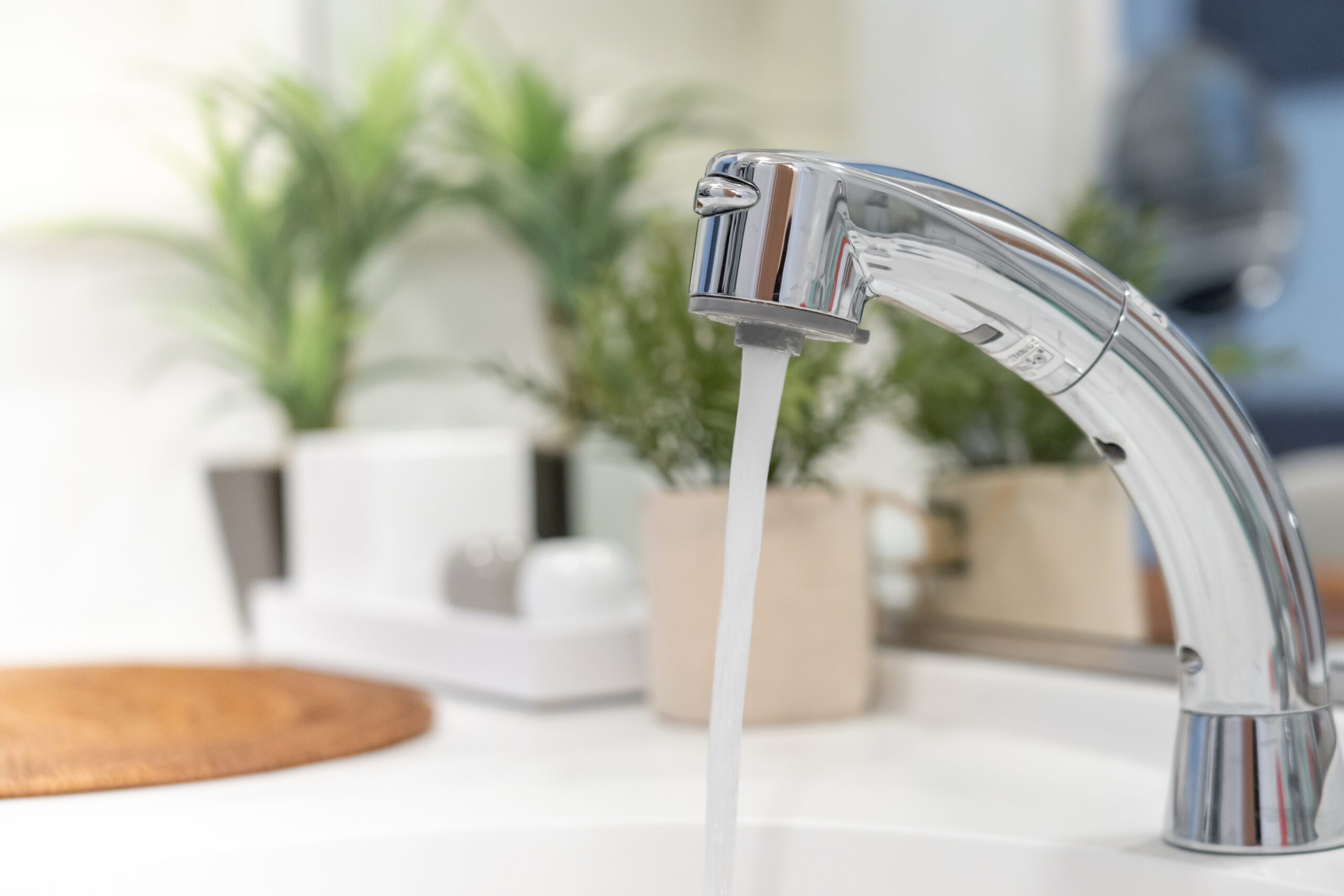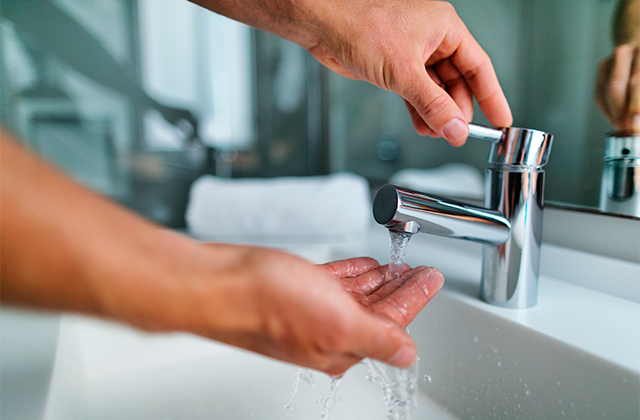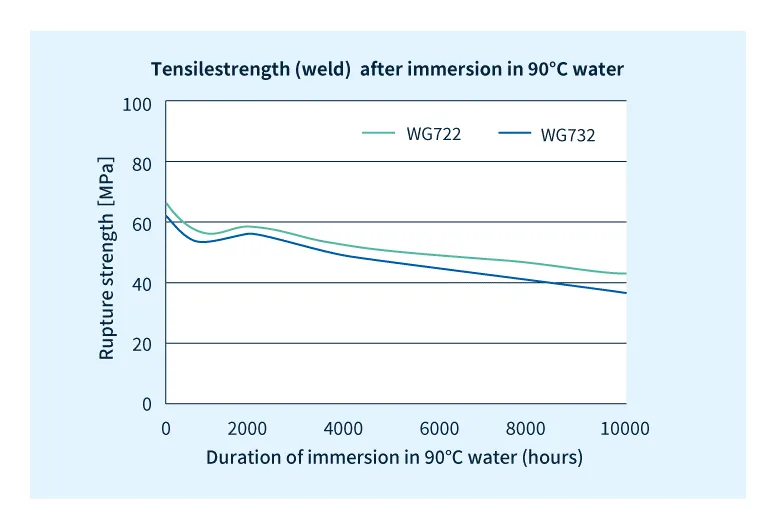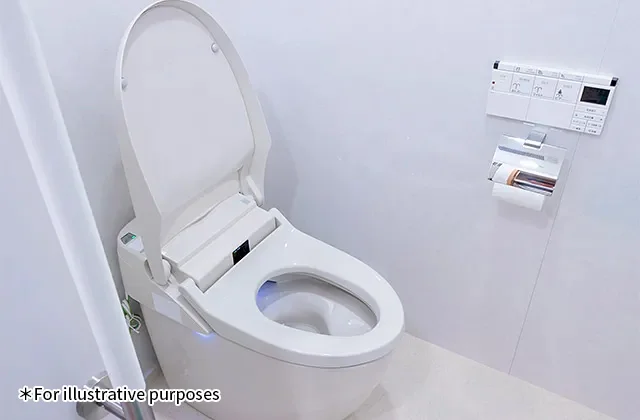Product
Excellent flame retardancy, electrical properties, dimensional stability, and water resistance. It is used in photovoltaics, batteries, and communication components.
For inquiries regarding SDS and various chemical substance investigations, please make your request through your purchasing route, such as via a trading company.
We appreciate your understanding and cooperation.

The United Nations’ sustainable development goals and other international efforts to improve water safety have intensified pressure on home builders and other construction-industry firms providing residential and sewage infrastructure to offer improved water safety, reduced emissions of carbon dioxide, and sustainable management of water resources. The goal of enhancing water safety, in particular, has led to a worldwide strengthening of regulatory standards for materials that come into contact with water, with the specific goal of preventing contamination by lead and other toxic eluents that leach into water from brass, copper, and other metals conventionally used to form pipes.
In addition, growing construction of housing, buildings, and infrastructure has increased demand for drinking-water systems, particularly in developing countries. As a result, home builders and other construction-industry firms face a difficult challenge: to take maximal advantage—as appropriate for specific individual circumstances—of materials satisfying regulatory standards around the world, all while navigating the increasing complexities of today’s supply chains.

In this environment, product designers have increasingly sought to replace metals with plastics as constituent materials for components designed to make contact with drinking water—including components that may seem invisible in our daily lives, such as water-use meters, faucets, showers, pipes, junctions, and filters.
But the advantages of switching to resin materials are not limited to protection against toxic eluents and contaminants; the unique properties of resins—including their good mechanical properties, their chemical resistance, and the fact that they do not rust—serve to extend product lifetimes, while their lower weight reduces the cost and environmental impact of shipping products.
Asahi Kasei offers engineering plastics compliant with European and American drinking-water standards (including NSF, KTW-BWGL, ACS, and WRAS) to support our customers in producing products meeting all regulatory guidelines for drinking-water applications.
For applications involving contact with drinking water, Asahi Kasei recommends our XYRON™ W-series modified PPE resins.
XYRON™ W-series are materials featuring low elution that have earned various drinking-water certifications in the U.S. and Europe. These products are also compliant with various standards for warm-water environments, and may be used to form pump components, mixing valves, softeners, purifiers, and other components of water supply and drainage systems.

The excellent mechanical strength, hydrolysis resistance, low water absorption, and acid and alkaline resistance of these resins makes them ideal for use in long-lifetime products. These resins also offer excellent dimensional precision and good moldability properties, making them amenable to efficient production and helping to reduce production costs.
| Drinking-water certification | Non-reinforced | Reinforced | |
|---|---|---|---|
| NSF-61(U.S.) | W5000 | WG720 | WG731 |
| NSF-61(U.S.) | W5002 | WG722 | WG732 |
| KTW-BWGL(Germany) | |||
| ACS(France) | |||
| WRAS(U.K.) | |||

| Property | Units | Test method | Conditions | XYRON™ WG722 |
XYRON™ WG731 |
XYRON™ WG732 |
|---|---|---|---|---|---|---|
| Specific Gravity | ‐ | ISO 1183 | 23℃ | 1.20 | 1.28 | 1.28 |
| Water absorption | % | ISO 62 | 24 hours underwater | 0.06 | 0.06 | 0.06 |
| DTUL | ℃ | ISO 75-1 | 1.80MPa | 144 | 135 | 144 |
| Tensile strength | MPa | ISO 527 | 23℃/50RH | 121 | 125 | 140 |
| Weld strength | MPa | Asahi Kasei Process | 23℃/50RH | 65 | 47 | 62 |
| Flexural modulus | MPa | ISO 178 | 23℃/50RH | 6900 | 9300 | 8900 |
| Charpy impact strength | kJ/㎡ | ISO 179 | 23℃/50RH | 12 | 10 | 12 |
| Notes | GF20% | GF30% | GF30% | |||
The excellent chemical resistance and well-balanced mechanical properties of Asahi Kasei’s TENAC™ polyacetal (POM) make them ideal for a wide variety of applications. We also provide grades of TENAC™ POM compliant with regulations governing products that make contact with food items, including the EU10/2011 standard in the European Union and the FDA21 CFR177 standard in the U.S.
Please be aware that the use of TENAC™ POM for sewage-management applications is prohibited. For more information, please contact us using the links below.
Asahi Kasei’s LEONA™ polyamide (PA) for water supply and drainage systems is reinforced by glass fibers to yield materials of outstanding high strength suitable for products subjected to heavy loading or high water pressure. For more information, please contact us using the links below.


Asahi Kasei offers a wide range of simulation capabilities based on resin CAE technology to help you design products based on engineering plastics. For example, switching from metal to engineering plastics requires design optimization of product shapes to ensure satisfaction of all relevant requirements. We offer simulation and optimization support–customized to accommodate the unique features of individual resins–to assist in your product design and manufacturing process.
For more information, please contact us using the links below.

Please feel free to contact us with any questions about our products or technologies or to request samples.
We will introduce Asahi Kasei 's engineering plastic products and technologies in more detail.
We regularly deliver product and industry information to help you gather information.